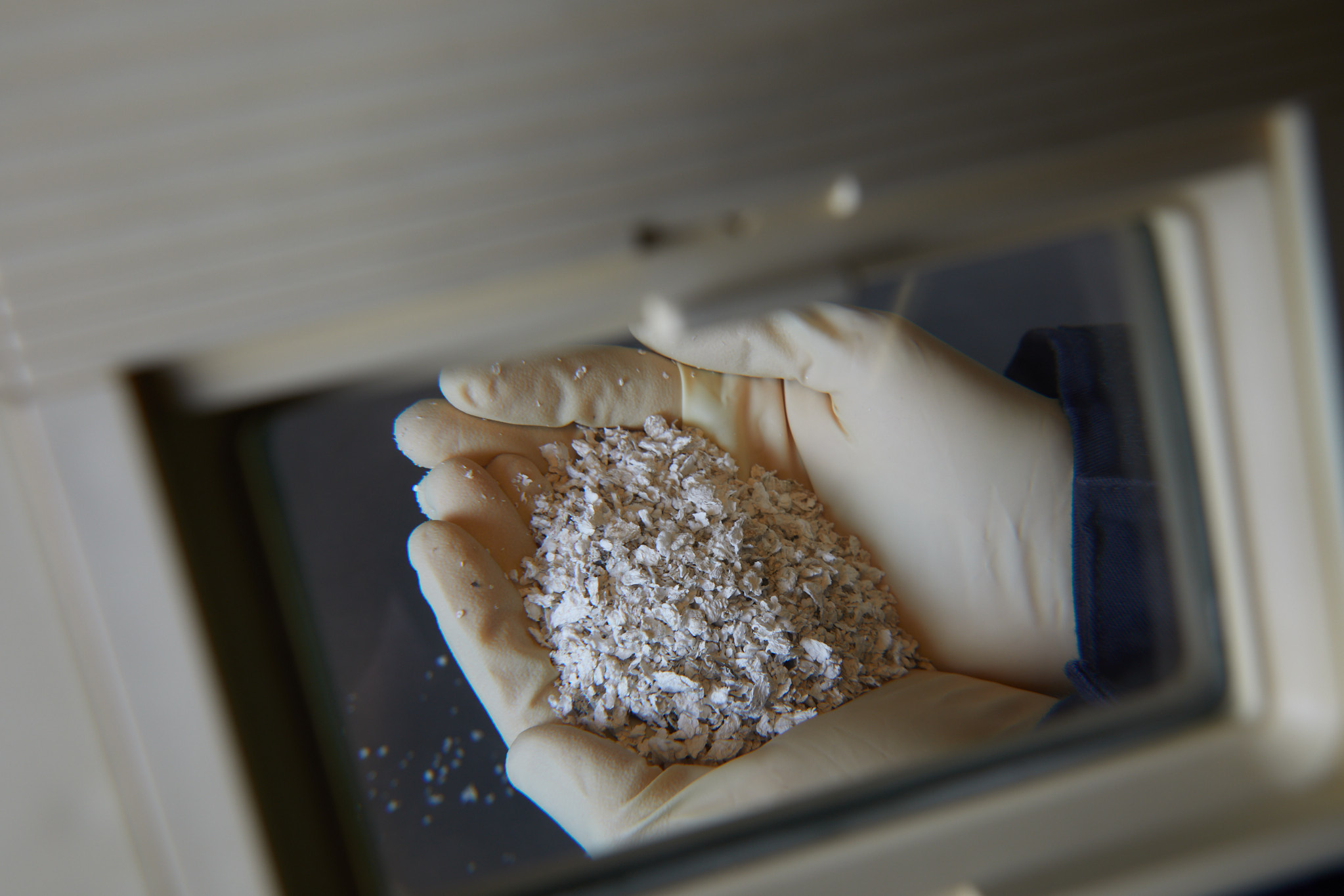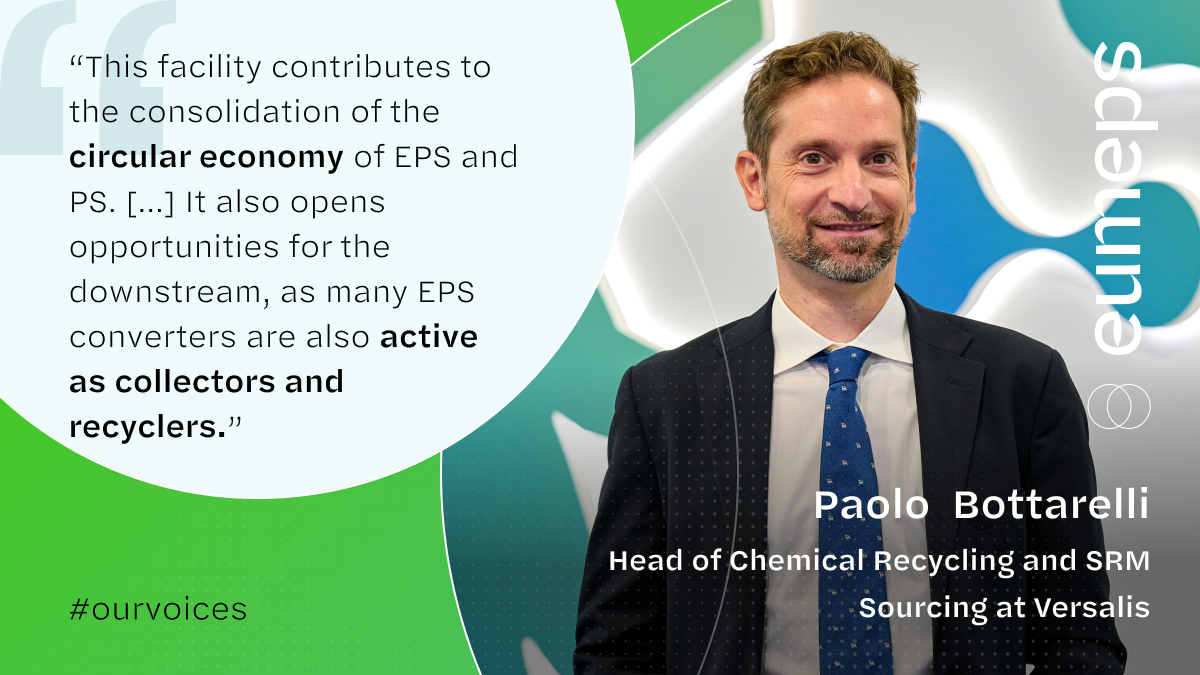In the face of increasing regulatory expectations and growing market demand for sustainable materials, the EPS industry is reinforcing its commitment to circularity. The recent inauguration of Versalis’ new r-EPS production facility in Porto Marghera, Italy, demonstrates how industrial action can align with EU circular economy goals while strengthening the EPS sector’s resilience. As a long-standing member of EUMEPS, Versalis is actively contributing to building a resilient, competitive and resource-efficient future for expanded polystyrene.
This new site supports the transition toward a circular and climate-neutral economy by transforming post-consumer EPS waste into high-quality raw materials for new products, particularly in construction and packaging, where durability, safety and performance remain non-negotiable.
Supporting a functional and competitive circular market for EPS
 By transforming post-consumer EPS waste into high-performance recycled material, the new site directly supports the objectives of the EU Circular Economy Action Plan, creating industrial demand for quality recycled feedstock.
By transforming post-consumer EPS waste into high-performance recycled material, the new site directly supports the objectives of the EU Circular Economy Action Plan, creating industrial demand for quality recycled feedstock.
“The facility is designed to maximise the use of post-consumer EPS material and currently, this is the main feedstock. We will be able, however, to integrate, based on our work in nearby fields, also the use of PS-derived SRM. Our sourcing operations, by definition, create a demand for increasing EPS waste collection. This facility contributes to the consolidation of the circular economy of EPS and PS,” explains Paolo Bottarelli, Head of Chemical Recycling and SRM sourcing at Versalis SpA.
This approach contributes to the industrial consolidation of EPS recycling in Europe, reinforcing the need for reliable sorting, collection and processing systems — a shared priority for EUMEPS and its members.
Ensuring performance and safety in construction applications
 The Porto Marghera plant plays a pivotal role in ensuring that recycled EPS is suitable for building applications — a key sector for achieving the EU’s climate and energy objectives.
The Porto Marghera plant plays a pivotal role in ensuring that recycled EPS is suitable for building applications — a key sector for achieving the EU’s climate and energy objectives.
“The products manufactured in Porto Marghera belong to the Versalis Revive® range and aim at supplying our customers with recycled products that perform as well as a standard material. Our know-how in the production of traditional EPS allows us to design R-EPS in such a way that the performance, in terms of processability, insulation and fire performance, is the same as the virgin equivalent,” Bottarelli continues.
This reinforces the message that recycled content and high performance are fully compatible, even in regulated applications such as thermal insulation — a key factor of renovation strategies supported by the EU Green Deal and national long-term renovation plans.
Strengthening cooperation across the value chain
The success of circular solutions depends on coordinated action across the value chain — from producers and recyclers to converters and end-users. Versalis recognises the importance of cross-sectoral partnerships to unlock the full potential of EPS recycling.

“We are already engaged in an active cooperation with actors in the chain, in Italy and abroad, to increase the availability of SRM from post-consumer EPS. Indeed, this opens opportunities also for the downstream, as many EPS converters are also active as collectors and recyclers,” notes Bottarelli.
This collaborative mindset echoes EUMEPS’ own strategy to facilitate value chain coordination, enabling efficient circular systems at the European scale and building a stronger, more resilient EPS industry.
The opening of the Porto Marghera facility illustrates how innovation, industrial cooperation, and strategic investments can reshape the future of polystyrene in Europe. By turning waste into a valuable resource, Versalis contributes to the decarbonisation of the chemical sector and the long-term viability of high-performance, circular EPS applications. As the sector evolves, EUMEPS will continue to support initiatives that align with EU policy goals and position EPS as a key enabler of a sustainable, competitive and climate-resilient built environment.

